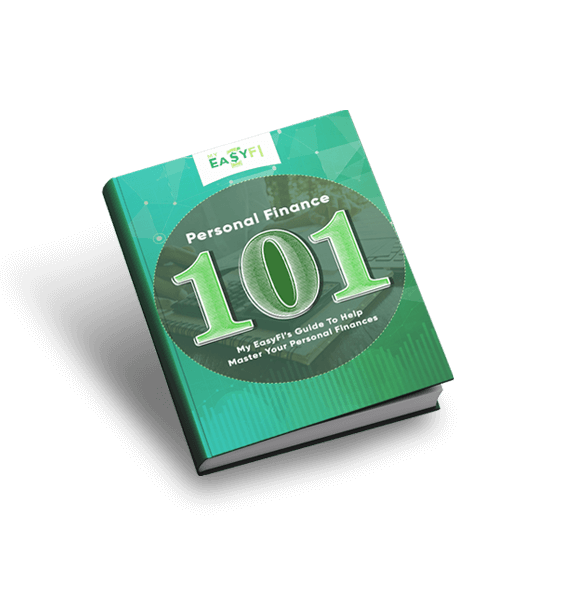Of all the clichéd debates about money, the most common one you might have heard arises from the question: can money buy you happiness? As simple as the question seem, the answer is much more of a tangled affair of human psychology and money. But there’s no leaving out the connection that money has with happiness.
Money is essential for all of us. Most of us think that it’s a way to charge our happy meter to the full and approach practices for it. If there weren’t any connections, we wouldn’t go shopping for things we like or invest it profitably. But then again, everything bought with the idea of luxury and happiness isn’t all to cheer us up. This affair is more complicated than we believe.
Can Money Buy You Happiness? Science Has Some Answers
For decades, scientists and psychologists have explored the link between money and happiness to sort out the hows, whys and every why-nots of moods and money. Why is that you have money but you want more? Why does spending money bring more pleasure and satisfaction than working hard to earn it? Why does buying expensive things get us momentarily joy?
While these questions persist, the way money affects your life depends on some factors, like cultural values, your area of residence, your personal beliefs, and the way you see the money. According to Healthline, things that bring happiness have an intrinsic value, meaning that they hold a sentimental value for you, if not for others. In contrast, money has extrinsic value, where it can bring real-world joys too.
While having cash lying around, you may not be the exact way to be happy. Money does bring happiness when spent to buy something that brings you intrinsic joy. However, just because it brings you happiness, it doesn’t necessarily mean that it would be a long-lasting one.
As mentioned before, happiness can fluctuate depending on several factors. For instance, a 2018 research found that women in poverty-struck areas found emotional well-being and satisfaction when provided with regular cash over 48 months. So along with other similar studies, it can be established that money brings happiness associated with basic needs being met.
Money Can Buy Happiness, But It Can Buy Misery Too
So, now we’re at the heart of the debate – can money buy you happiness? While it does in one sense, in the other, it doesn’t. The thought of having more money bubbles into the idea of more happiness. Now, how does misery takes its toll here when wanting more money reciprocates more happiness? As impressive as the paradox sound, the need to have more money is ineffective in bringing actual joy.
As soon as the basic needs are fulfilled, having a lot of money doesn’t correspond with intrinsic, happiness-associated values. Sure, people struggling with personal finances might find satisfaction with wealth, but the tables turn when it comes to the rich attaining the same kind of satisfaction from money.
The real reason why money becomes a misery is the association with the joy associated with the idea of an object. For example, you may be longing to buy that flat-screen TV and might be working overtime for it. Imagine what happens when the new TV loses the appeal over time and later you begin to question your choice. So associating your hopes without considering the option itself brings short-term happiness followed by disappointment only.
While money buys happiness, it also stresses you out. Imagine buying a condo in the suburbs and bearing the expenses of maintaining it, where the hassle of commute to work will add more to the problems. The other thing that would stress you out is going to be the constant comparison with the family next door. With scenarios like these, you jump into a hedonic treadmill where you return to a stable level of happiness regardless of the positivity or negativity of life’s events.
So, how do you get off the hedonic treadmill?
How Money Comes As A Bliss
Can money buy you happiness? Under some circumstances, yes. You need to figure out the intrinsic value related to your satisfaction, so you can see what makes you happy in the first place. There are several drivers of happiness, which can maximize the joy without making you unsatisfied.
Here are a few ways psychology suggests you can implement to restore a healthy connection between money and happiness in your life.
1. Having More Money Doesn’t Always Lead To Happiness
This is a realization that comes when you see that money doesn’t necessarily define your happiness. It will fulfill your need and satiate you to a certain point, after which it might impose negative impacts. For example, you may get a nice house, a good job, and all the amenities for a luxurious lifestyle, but wanting more than that will only lead to added stress, rivalry, and other chaotic impacts on your life.
2. Involve People You Love
What have people to do with your happiness and money? Can money buy you happiness with the people involved? Yes. The connection is deeper than you think. Family and friends can be the greatest hit for a happy life. Studies suggest that people with five or more close friends are 50% more likely to be more satisfied than those with a small social circle. Here, the power of human connection is greater than the power of money. Also, people in committed relationships are found to be happier than those who aren’t.
Even so, doing different activities with family and spending time and money on them not only brings you closer but also gives you a sense of reliability and trust. The experiences you have with them brings greater joy than having to do something alone.
3. Change Your Daily Habits
Another psychological reason surrounding money and happiness lies in your daily habits. Your day-to-day activities might indicate an endless parade of hassles, only highlighting a few moments of consideration to your happiness. If you still think the hassles are growing and happiness is nowhere to be found, play the day’s memory record in reverse every night to see what you missed.
Of course, you may start noticing your daily habits to discover the innumerable moments of joy – related or unrelated to money. Applying the experiences might not be the most enjoyable thing, but it will help you explore the inner flow controlling your happiness.
4. Focus On Developing A Healthy Lifestyle
As discussed before, money can buy you happiness. Still, you also have to work toward developing a lifestyle that dictates your inner calm, making peace with your relationship to money. So, what you can do here is to spend money on things that increase the prospects of long-term happiness. You may start journaling, meditate, exercise, or give charity to lighten your life.
You will develop a clear focus and will nurture a sense of fulfillment and satiation. Try eating healthy as it’s also related to suppressing the stress triggers that could arise from a financial tug-of-war inside your head.
5. Be Mindful Of Your Spending And Expenses
Most people miss out on the fact that if money can bring happiness, it can bring misery in the form of critical financial situations. Whether you spend out of the shopper’s itch or have a tight budget to take care of, becoming mindful of the hows and whys of your spending will detail a great deal about the current relationship between your happiness and financial condition.
At this point, take a moment, view your situation from a neutral point of view and ask yourself if you’re happy with your spending rituals. It’s better to switch to an alternative if you’re experiencing some financial crisis. Becoming aware of your spending will allow you to make better choices for a better life.
6. Do Things That Make You Happier
Several people like to enjoy the idea of attaching their happiness to a specific object. But here’s the thing: happiness counts more when it is related to experiences than objects. Compare your satisfaction for physical objects with the one you’ve had with your experiences, and you’d find that there’s a short- and long-term scenario at play. Buying physical objects will help you achieve short-term happiness, but experiences of what you love to do will bring joy for the long-term.
Say, the activities you enjoy could be going to a concert, taking a cooking class, going for a vacation, volunteering, or any other. The experiences could introduce you to new feelings and risks, memories of which may live in the background.
7. Spend Money On Others
Who doesn’t like to spend money on themselves? Almost everyone does, and it brings happiness to some extent. Want to know how can money buy you happiness? It’s the altruistic spending for the greater good other than yourself. Research finds that people spending bonus money on charity tend to be happier than their counterparts who don’t – regardless of how big or small the bonus is.
You could also choose to spend on your family, which will create a happiness loop. You will come in a state of flow where passive pleasure becomes a thing of the past. You become active in the pursuit of pleasures that are shared, and hence having to spend money on others gives joys better than any.

